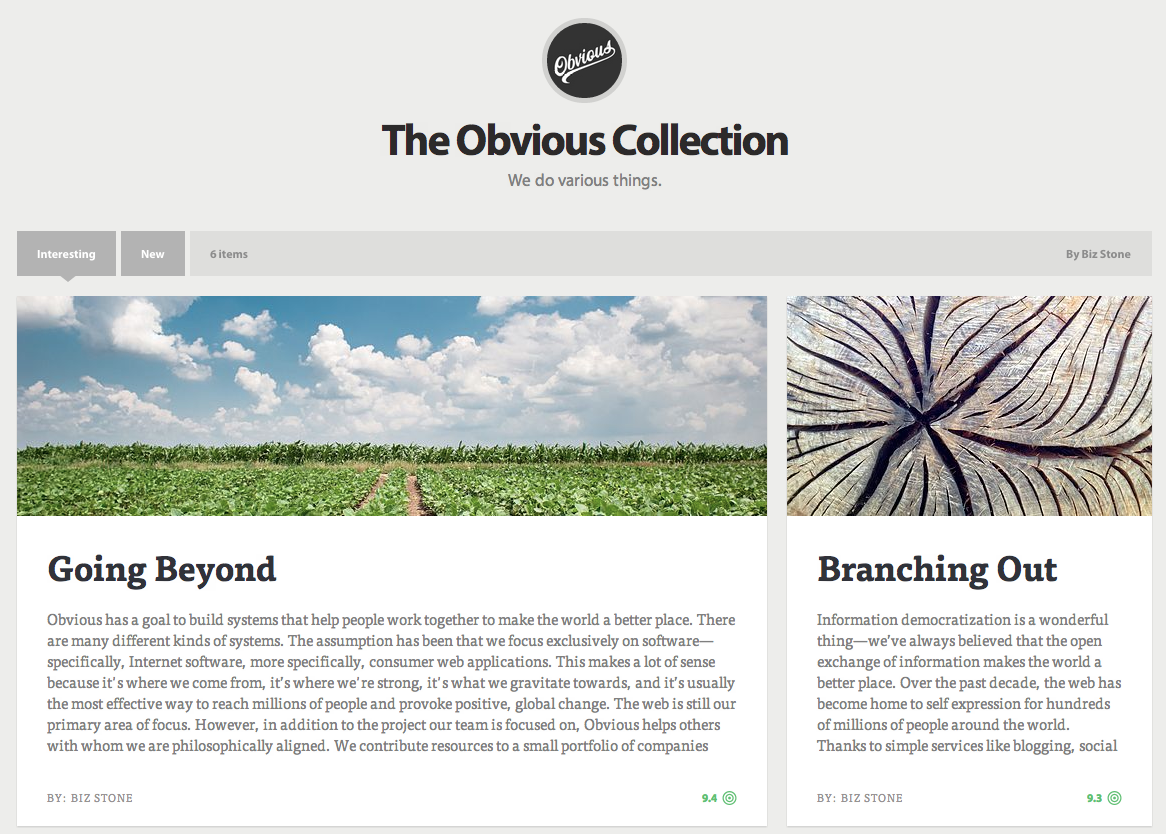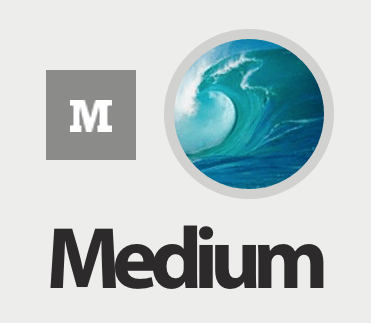Obvious Corp has just unlocked Medium.com, revealing that its a publishing platform that collects submitted text and images into themed collections so you don’t need a following to be heard. Anyone can read and give feedback on Medium entries starting today, with publishing access to roll out from friends and family to more people soon.
Backed by Twitter co-founders Evan Williams and Biz Stone plus the rest of the Obvious crew, Medium could democratize content distribution. The way Twitter’s retweets gave anyone with 140 characters of brilliance a way to spread across the web, Medium could do the same for longer thoughts.

To truly understand the ethos behind Medium, you should read Williams’ full introduction, but here’s the gist of how it works.
Posting on Medium (not yet open to everyone) is elegant and easy, and you can do so without the burden of becoming a blogger or worrying about developing an audience. All posts are organized into “collections,” which are defined by a theme and a template. (For example, this post is in the About Medium collection with a simple article template.)
We believe that good design supports the purpose (not just the appeal) of content, so Medium is diverse in look and feel—ranging from different types of articles to images to, eventually, much more.
Collections give people context and structure to publish their own stories, photos, and ideas. By default, the highest-rated posts show up at the top, helping people get the most out of their time in this world of infinite information.
To start there are four collections:
Been There. Loved That. – Beautiful and absurd photos, sometimes with short captions
Look What I Made – Image and descriptions of homegrown creations from cool hairstyles to colored snowmen
The Writer’s Room – “Tools And Strategies For A Writing Life”
The Obvious Collection – Briefs on some projects Obvious is backing

The platform feels reminiscent of the collection format of now-deceased Photovine, and has a similar purpose to minimalist blogging tool Svbtle. It could potentially blossom into a more intellectual and less consumerist Pinterest, but with the flexibility of Tumblr. And yes, Medium turned out to be way more daring than the photo captioning tool that sat as a placeholder on its home page the last few weeks.
Of course, the idea of letting anyone find an audience only works if you have a big enough audience to sort through and rate all the content. That’s why its smart to kick off with a vetted set of publishers. If Medium can stay entertaining and informative until its readership grows, it sneak past the chicken and the egg problem that plagues curated, crowdsourced content hubs.
Medium could be a huge help to young or fledgling thought-leaders who haven’t amassed enormous Twitter follower counts or gained spots writing for popular blogs. Instead of putting the emphasis on who the writer is, the spotlight shines on the content. Something great will bubble up within a collection and be seen based on its own merit. And that’s kind of what the Internet is supposed to be about.
